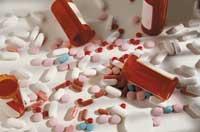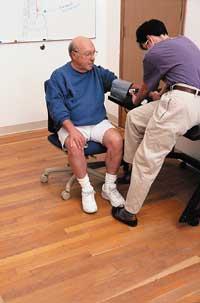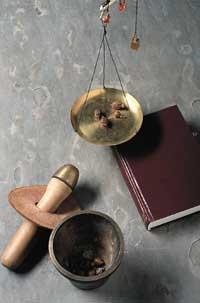Placebos: sugar pills
However, until the beginning of modern medicine, placebos did not have their current meaning. The doctors of ancient societies treated the person more than the disease, because the cause of the disease was not as clear as now. Therefore, these physicians took the whole body and soul, and did not distinguish the medicine or the physician's performance.
As medicine progressed, physical and psychological effects were separated, and taking advantage of patient belief in the pharmacy or doctor, placebos were used to cure symptoms. Until the mid-twentieth century.

However, since scientists Robert Coch and Louis Pasteur discovered that certain bacteria caused specific diseases that could be cured with the right medicines, the view on placebos changed. Modern medicine, the pharmaceutical industry and national legislation require demonstrating the efficacy and safety of medicines. To do this, the effect of the drug must be differentiated from other factors, such as changes of its own, the natural evolution of the disease, partisan observation or random selection of patients, rather than being in the interests of someone.
Therefore, from the 1940s, placebos are used for clinical drug testing. Thus, patients were divided into two groups: one was treated and the other (control group) was placebo. The physical or psychological changes presented by the control group were called “placebo effect” and, comparing the evolution of both groups, the efficacy of the treatment was measured.

Since then, clinical trials are often similar. In turn, the cause of the placebo effect has been clarified and these are the main explanations. On the one hand, thinking that it is under treatment, it decreases the anxiety of the patient and, consequently, improves his immune system. On the other hand, hope is awakened and the patient detects any improvement, so the patient seeks to change his behavior and recover it. In addition, if patients have received prior treatment, the response to such treatment is kept in memory and placebo may cause a conditional response. Finally, during the secretion of endorphins there are behavioral changes, decreased anxiety and stress and improves the activity of the immune system.
However, some scientists believe that in a strict sense there is no placebo because the body (or mind) processes all substances or manipulations, so they produce a physiological response that will depend on the person. For example, inhaled saline causes asthma flare-ups in some asthmatics, while others are relieved by bronchospasm. In this case, what would be placebo and what placebo effect?
In addition, in recent times some researchers consider that the ethical aspect must also be taken into account. For example, not giving a medicine that can benefit the control team in clinical trials is an ethical problem. And while the placebo effect causes control groups to perceive an improvement in their health status, they will be scammed, as they will attribute the improvement to the placebo patients had as treatment. According to the Declaration of Helsinki, the use of placebos is unethical if you want to try the new medicine for a disease with remedy.
In addition, the New England Journal of Medicine published a paper on placebo. In previous studies the placebo effect was considered proven. For example, in the well-known article “The powerful placebo” (The powerful Plazebo) by the scientist Beecher in 1955, it was explained that the improvement without objective cause was around 35% of the cases.

However, researchers Asbjorn Hrobjartsson and Peter Gotszche have analyzed 130 clinical trials, some of which have given pleasure to patients and others have not. Placebo could be pharmacological (e.g. lactose pill), physical (nerve excitation through a switched off machine) or psychological (neutral interview) and analyzed 40 diseases (hypertension, asthma, anemia, bacterial infection, obesity, infertility, depression, schizophrenia, epilepsy, Parkinson, Alzheimer, etc. ). Divided into different clinical trials, a total of 17,050 patients participated.
The conclusion was significant for the researchers. In fact, they concluded that placebos generally had little clinical effect, which was only evident in the treatment of pain. Therefore, the authors of the article recommend not to use placebos in clinical tests.
Probably from now on experts will continue to discuss whether the use of placebos is still appropriate or legitimate, but lately the trend is changing. More and more researchers are proposing to perform clinical trials in a different way and, also among doctors, prescribing placebos to patients is not as well seen as before. It seems that, from the point of view of some, the strength that the sugar pills had been thrown to them has dissolved.





